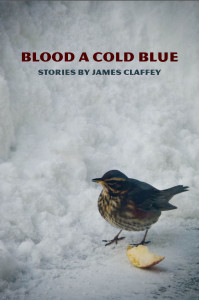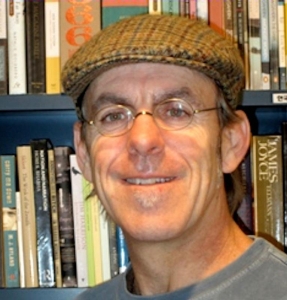My Writing Process
Written by James Claffey
Today I’m taking part in the #MyWritingProcessTour. It’s so interesting and instructive to see how other writers  go about their work. My friend and Press 53 fellow, Bonnie ZoBell, nominated me. Her book, What Happened Here is an engrossing, brilliant book about fictional people and events centered on the actual Pacific Southwest Airlines disaster of 1978 that took place in the North Park district of San Diego, close to Lindberg Field Airport. Bonnie’s answers can be found at this link: ZoBell Answers.
go about their work. My friend and Press 53 fellow, Bonnie ZoBell, nominated me. Her book, What Happened Here is an engrossing, brilliant book about fictional people and events centered on the actual Pacific Southwest Airlines disaster of 1978 that took place in the North Park district of San Diego, close to Lindberg Field Airport. Bonnie’s answers can be found at this link: ZoBell Answers.
What am I working on?
 Currently I’m editing a novel set in Ireland, about a young boy dealing with issues of alienation and loneliness, caused by his father’s inability to communicate with him. The book is written in first person point-of-view and examines the difficulties the boy encounters as he grows up and experiences puberty and its inherent problems. I’m also working on Pure Slush’s “Year in Stories” Project, and have three months of the twelve left to complete. My stories deal with a character, The Bird Mahony, who is reeling from the death of his parents, searching for love and meaning for his life in small-town Ireland. The project gives the writers latitude to spread wide the canvas and really show the life of a character from multiple aspects over the course of a year.
Currently I’m editing a novel set in Ireland, about a young boy dealing with issues of alienation and loneliness, caused by his father’s inability to communicate with him. The book is written in first person point-of-view and examines the difficulties the boy encounters as he grows up and experiences puberty and its inherent problems. I’m also working on Pure Slush’s “Year in Stories” Project, and have three months of the twelve left to complete. My stories deal with a character, The Bird Mahony, who is reeling from the death of his parents, searching for love and meaning for his life in small-town Ireland. The project gives the writers latitude to spread wide the canvas and really show the life of a character from multiple aspects over the course of a year.
How does my work differ from others of its genre?
I don’t identify with a genre, so the smart answer is it doesn’t. However, insofar as my work is different to other writers writing short fiction, I suppose voice, sentence structure, and content might set my writing apart, a little. There’s no attempt by me any more to fit into any category, nor fall into a proscribed plot format. All of that is uninteresting to me, and might indeed be a financial kiss-of-death in terms of ever making any real money from my writing. I’m more interested in spinning the images and ideas in my writing on top of those long metal poles, constantly returning to one to give it another spin, keeping the whole thing going, even as the entirety of the story teeters on disaster. I don’t want to be “like” other writers, even though there are many I admire. I’m my own man, writing my own material, and to hell with the in-crowd, or the followers of literary fashion. Maybe my dissatisfaction with such establishment ideas is why I get to do what I want without much attention.
Why do I write what I do?
Didn’t I just answer that? I can’t write to order, or fashion, or style, and instead write from a deep place inside of myself, and what comes out is strange, convoluted, thin on plot and character for the most part, but it’s inventive and honest and real and that’s more meaningful to me than the promise of agent representation or big-house publishing deals. Once, those things mattered, but today they seem inconsequential. There are people I write for who matter to me, alive and dead, inspirational people, from former students and mentors, to lost loves and childhood friends. I write from the conviction that what I have to say matters to me. I suppose, at the deepest level, I write for my mother and father, from who so much inventiveness, humor, discipline, love and wonder comes.
How does my writing process work?
With a toddler running around the house and a full load teaching high school English, the answer is not very well! Prior to going back to the classroom, I was able to take a fair chunk of my time and focus on the writing process, and submitting to various journals and presses. These days I tend to squirrel time away and write in short, no-longer-than-an-hour bursts. The advantage to having so little spare time to write is that I don’t fiddle about getting down to the work, and now the minute I sit at my desk I begin to write. Some days it’s revision, some days new material. In terms of process, I write out first drafts without going back over the material, waiting for the whole piece to be down on paper before setting to the revision process. Ideally, I read all my work aloud, listening for words that sound out of place, or phrases that grind and jar the ear. During revision I tend to leave the actual frame of the piece alone for the most part, focusing instead on polishing the work on the word and phrase level. Working with Jeanne Leiby and Jim Wilcox at LSU taught me the importance of keeping my prose as clean and tight as possible. Both were fastidious editors at the sentence level and I find myself constantly critiquing everything I read with an eye to their editorial advice. That’s not to say that errors don’t creep into my writing. Happens all the time!
My tags
Sam Snoek-Brown:
Samuel Snoek-Brown is the author of the chapbook Box Cutters (sunnyoutside press) and the novel Hadridden (Columbus Press), for which he received a 2013 Oregon Literary Fellowship. His work also has appeared in dozens of print and online literary magazines. Samuel has a doctorate in creative writing from the University of North Texas and teaches writing and literature in Portland, Oregon, where he lives with his librarian wife and their two cats.http://snoekbrown.com/. Twitter: @SnoekBrown
Clodagh O’Brien:
Clodagh O’Brien writes flash fiction, short stories and poetry. Her writing is featured or forthcoming in various publications and anthologies including The Poetry Bus, wordlegs, Literary Orphans, Bare Hands Poetry, 1000 words, the firstcut, The Galway Review, The Salmagundi (67 Press) amongst others. In 2013 she was longlisted for the Doire Press 2nd Annual International Chapbook Competition and the 2012 Over the Edge New Writer of the Year. In 2002 she won the Daily Telegraph Young Science Writer of the Year Award. You can read her work at www.clodaghobrien.com and tweets @wordcurio.
Maura Barrett:
Maura Barrett grew up in the foothills of the Comeragh Mountains in Co Waterford, Ireland. Her love of literature seeps from that landscape. She has been published thrice. Her first outing was a work of non fiction entitled Kilcooley Abbey, which charts the life of an Cistercian Abbey from Norman times, was published in 2010 by Slieveardagh Rural Development. Her fiction is showcased in Original Sins an anthology of New Irish Writing published by MACE in 2011 and Knife Edge an anthology of crime, thriller, mystery and suspense stories published by Marble City Publishing in 2012. Maura’s writing covers the nuances of life and the craft of surviving intact. She is currently working on her debut novel Beautiful Freedom, set in 80s recession Ireland where the grip of the Catholic Church desperately clings, the peace process is spawned and one woman gives away her baby. She lives now in the bowels of Co.Tipperary. Her blog is at http://www.simplesite.com/Her-Story/.
Linda Niehoff:
Linda Niehoff is a writer and photographer in a small Kansas town. She’s in love with silver water towers, ghost stories, and instant film. Her stories have appeared in Crack the Spine 2103 Spring Anthology, Scissors & Spackle, and Literary Orphans among others. Her website is at http://thewrittenpicture.typepad.com/. Twitter: @lindaniehoff
Teri Lee Kline:
Teri Lee Kline was born and raised in a small town in Wisconsin. She survived a strict catholic upbringing with her four sisters and her brother. Always an introvert and happiest when curled up with a book or pen and paper, she started writing at an early age and never stopped. Her work has appeared in Sein und Werden and Literary Orphans and has a collection of very short fiction in progress. Berkeley, California is now the place she calls home. She misses the snow. Her blog is at http://www.terileekline.com/. Twitter: @terikline

Leave A Comment